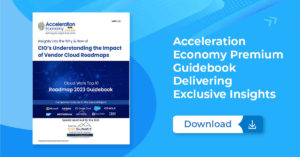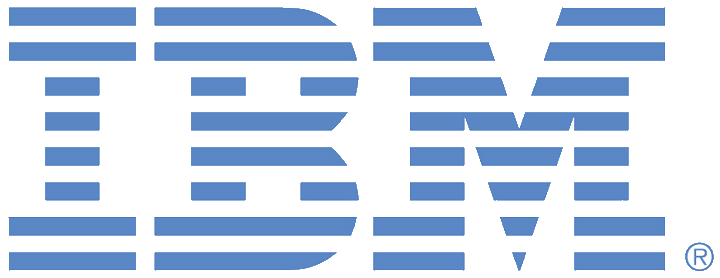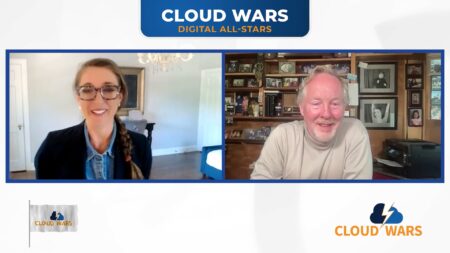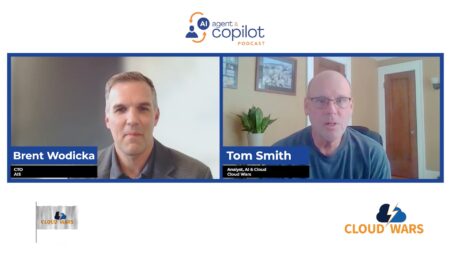
When IBM reports its second fiscal quarter 2023 financial results this afternoon, look for more strong contributions from IBM Consulting, which continues to progress in making its Microsoft cloud relationship a massive revenue producer.
Building on parent IBM’s shift away from competing with the cloud hyperscalers, IBM Consulting has successfully added to the momentum that move unleashed by building out a series of customer-centric offerings with Microsoft that include:
- Executing mainframe-to-cloud migrations
- Helping joint SAP customers migrate to cloud-based ERP
- Working with customers to manage and achieve Microsoft Azure consumption discounts
- Selling jointly to ensure optimal customer engagement from the outset
IBM has stated publicly that it has already reached and exceeded its $1 billion revenue target with Microsoft, and now the company has much larger ambitions.
“We are currently putting together the last details around a five-year strategic plan with Microsoft,” says Chris McGuire, vice president and general manager of the Microsoft global strategic partnership for IBM Consulting. “We had a goal to enter the top five [global system integrator] partners that Microsoft has. We achieved that already and we would like to chase down number one as fast as we can.”
He added: “Microsoft’s top partnerships are in the $10 billion range annually together, so that’s my target, and I definitely am working very hard on the plan to get us there.”
McGuire says that about 60% of IBM Consulting’s revenue from the Microsoft relationship is from the applications and infrastructure part of Microsoft’s business; the remaining 40% comes from all other Microsoft product areas.
Mainframe and ERP Migrations
There are at least four ways IBM Consulting and Microsoft are working together to drive this growth agenda:
Helping mainframe customers effect cloud migrations
McGuire notes that the two companies have a cloud modernization program available in the Azure marketplace that helps clients understand and utilize tools that are available to manage such migrations effectively.
“We’re working really closely with Microsoft so that clients aren’t disappointed in their app modernization program, their cloud modernization program, or their mainframe modernization program,” McGuire says. “We have the deep mainframe understanding and Microsoft has the deep cloud understanding and clients really trust us.”
Working with SAP customers on S/4HANA cloud migrations
Following up on the previous app modernization point, McGuire noted that the partners have found a significant base of customers looking to move their SAP ERP systems off of older servers and have asked IBM Consulting and Microsoft to help in that process.

In some cases, they’re also moving their ERP apps from cloud to cloud, in many cases opting to host SAP in Azure. “Azure dominates in market share for SAP on cloud; I think over 50% of people that are making that selection move their SAP environment, especially S/4HANA, are selecting Azure,” he says. “A substantial percentage of our overall business to date with Microsoft has been SAP to cloud.” He said the partners have won “hundreds of millions of dollars” in those SAP programs.
In fact, after mainframe modernization, SAP migration and modernization ranks as the second highest investment area in the company’s Microsoft relationship, he says.
Guiding customers to unlock consumption-based discounts
More fertile ground that’s bearing fruit in the IBM Consulting-Microsoft relationship is in the area of helping customers manage their Azure consumption to achieve maximum discounts.
When Microsoft changed its Azure pricing model to offer substantial consumption-based discounts tied to commitment levels, customers began looking for guidance to reach those figures. “We can help them achieve that consumption through the right movement of applications or data or whatever it is,” McGuire says.
Joint selling puts the customer at the center
To hear McGuire articulate the benefits of IBM Consulting’s work with Microsoft, C-suite customers no longer work with two wholly distinct entities pursuing unique sales agendas. That’s a clearer, more logical, customer-friendly way of engaging.
“One thing we worked very hard on over the last two years is strong relationships between our account teams, our account leaders and making sure they’re going in together where possible and telling a unified story: Here’s what coming with Microsoft technology, and here’s how IBM Consulting can add value.”
Generative AI Use Cases
IBM Consulting officials have previously stated they have tens of thousands of professionals gaining certifications on Microsoft generative AI technology. McGuire detailed three of the most prevalent use cases that customers are pursuing in the generative AI realm. They are as follows:
Customer care: This is coming into play in the technology sector, including telecommunications, where fully human customer care is a big driver of costs; automation is expected to help reduce those costs. “That’s probably where we’re seeing the most pull-through right now, and the most immediate demand for generative AI,” McGuire says.
Healthcare: IBM Consulting and Microsoft tap healthcare as a target industry, and McGuire cited potential applications or use cases including the ability to quickly get information, or get to a physical or care professional with the assistance of generative AI.
Manufacturing: This use case revolves around predictive maintenance of factory equipment; with generative AI, customers can make data-supported decisions around future needs in their facilities and what’s likely to happen with the equipment, such as any pending maintenance issues.
IBM is expected to post quarterly earnings of $2 per share, which would be a year-over-year decline of 13.4%. Revenues are expected to be $15.5 billion, down .1% from the year ago quarter, according to analysts’ estimates.












